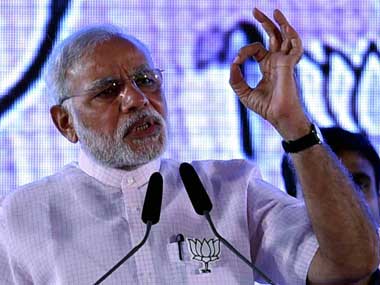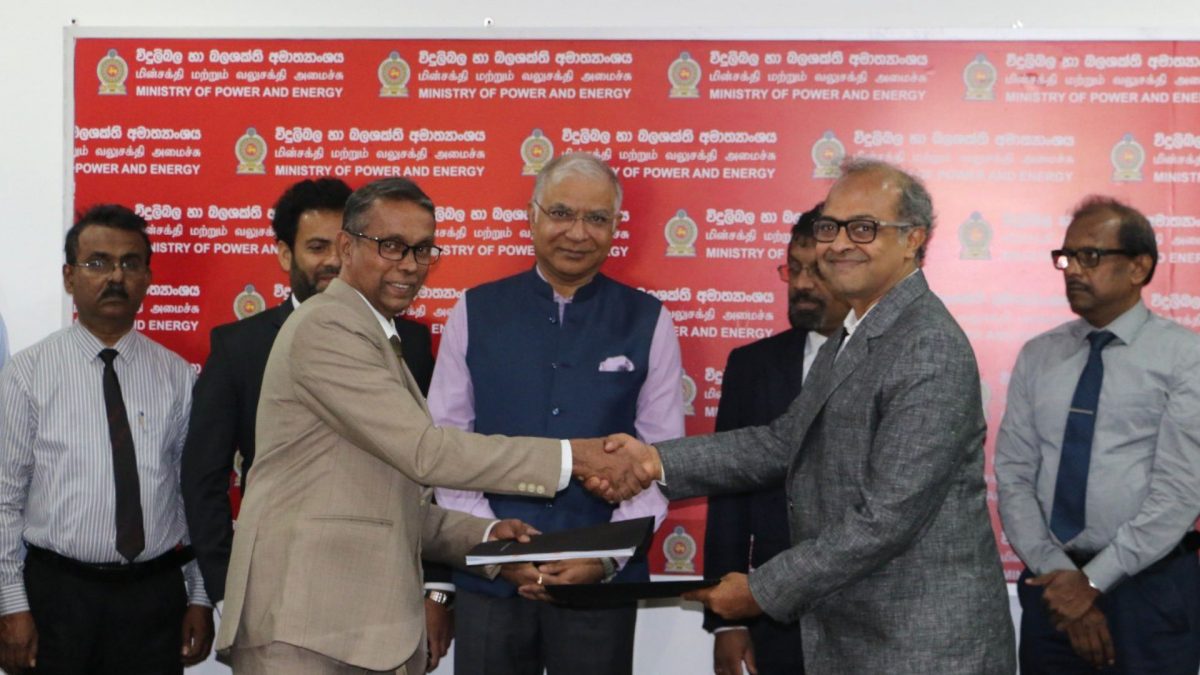From the surfeit of acronyms and alliterations that Prime Minister Narendra Modi has spun over the months, it is possible to bet on a few aspects of him – that he was most likely brought up in oral tradition, or relied on learning by rote in school, fears forgetfulness, has serious doubts about the retentive capacity of his listeners, and depends more on sound rhythms and catchy coinages than on the meaning of his message to connect with people.
Modi’s philosophy of communication has a special resonance in this age of social media. Through abbreviations, acronyms and alliterations – all three techniques combined together at times – he seeks to create a unique group of supporters who bond because they share, and appreciate, words and meanings not all can readily understand. Modi’s acronyms constitute an important element in the code defining his relationship with them.
This code mimics the abbreviated language inveterate social media users are habituated to employing. Thus, for instance, LOL and OMG – Laugh out Loud or Oh My God – may seem incomprehensible abbreviations for a doddering grandfather, but have definite meanings for the young or even the 60-year-old who has chosen to keep abreast with the changing lexicon of the times. In this sense the shared lexicon defines the boundary separating the ‘insider’ or ‘groupie’ from the ‘outsider’.
Modi’s reliance on acronyms and alliterations is not just about taking advantage of social media, as it might appear. It’s his reflex, his instinct, a habit of the mind deeply ingrained. It’s his method of remembering complex details, of not forgetting them. Modi perhaps believes what works for him will undoubtedly work for his listeners too. He sees them as either requiring simple formulae to remember complex narratives or belonging to the generation which revels in abbreviated language. Modi seeks them both.
You think this proposition is a consequence of an incredible imaginative leap. Well then, recall your school or college days when you were expected to enumerate “factors” or “causes” behind a certain phenomenon – social, historical, scientific, economic or political.
Those good old teachers would often tell you to create an acronym as a tool to remember lists of names or factors behind an event. For instance, the acronym HOMES can jog your memory about the names of the five Great Lakes in the United States – Huron, Ontario, Michigan, Erie and Superior. Or they would tell you to link the date of an event to words or images having a strong association for you. Thus, to the question when was the state of Bihar carved out from Bengal, you could remember the first part of the answer by associating it with April Fools’ Day. Yes, you guessed it right, Bihar was created on 1 April 1912.
Take the writer who, tongue-in-cheek, claimed that for much of his life he was never certain which colour of the Indian tricolour came on the top until the demolition of the Babri Masjid boosted the BJP’s rise. Thereafter, his confusion was dispelled: the saffron always comes first, he noted wryly.
Modi’s relentless use of acronyms as mnemonics suggests his favoured method of learning in school was memorizing texts, or the education he valued most was based on oral tradition, either tales and stories his family elders narrated or the lessons the RSS pracharaks imparted to him. In RSS shakas stories with morals and lessons are known to be imparted orally, in much the same way folklores and grandmother’s religious stories are. Repetitive renditions indelibly stamp stories on the listener’s memory. Or he learned by rote, reading texts over and over again. But those who rely unduly on memorizing also suffer from deep fears of forgetfulness. It is this fear Modi projects on his audience. As prime minister he cannot repeat many times the same speech to his audience, as is the favoured technique of the RSS shakha pramukh. This is why he feels the need of condensing narratives into codes – the acronyms and alliterations – that can be stored as easily accessible memory-files.
Modi’s acronyms and alliterations function as mnemonics for his key concepts and ideas. He fears his efforts, serious or vacuous, would otherwise be forgotten. Modi as prime minister retains the pracharak’s mentality, wishing to ingrain into his listeners what he believes are lessons they must remember.
His fear of forgetfulness can be discerned from the laboured method of stapling an acronym to a speech or an event he considers important. But the pressure or desperation sends him and his media team into an overdrive, leading to results which range from good to indifferent to even ridiculous.
Thus, on his maiden foreign visit to Bhutan, Modi codified the relationship as B2B – Bharat to Bangladesh. Did it mean anything substantial? To the Nepalis he said he wanted to HIT them – where H was for Highways, I for Informationways, and T for Transmissionways. On the eve of the Chinese president’s visit, he defined the future of the relationship between India and China through the bizarre acronym of “INCH towards MILES”, or Indo-China towards Millennium of Exceptional Synergy.
At times, Modi’s use of acronyms echoes the corniness of Hindi cinema. For instance, he famously said, “Mars has got MOM (Mars Orbiter Mission).” He said he was sure the Mars mission wouldn’t fail because he knew “MOM would never disappoint”. His quip brought back to memory the actor Shashi Kapoor telling Amitabh Bachchan in Deewar, “Mera paas Maa hai.” He recently rephrased FDI to read as “First Develop India”. This coinage of his was redolent of those Ajit jokes, which were funny only because they were outlandishly inane. There decades ago, there used to be a roaring Ajit club, comprising members who informally banded together because of their appreciation of the actor’s quips and attempts at coining jokey dialogues imitating his style.
Modi, too, has followers who admire his penchant for acronyms, though it is hard to tell whether it is on account of the message conveyed through them or because of their sheer hilarity. Either way, India can’t have a prime minister reduced to the status of Ajit, regardless of the cult following the Bollywood actor enjoyed once.
Modi has also demonstrated his love for alliterations, using them, again, as mnemonics. On his recent trip to the US, he harped on the advantages India derived from possessing the 3Ds – democracy, demographic dividend, and demand (for goods.). Point made, yes. But it seemed a case of aesthetics taking flight when the prime minister spoke of “5Ts” to “build brand India”, with the five Ts standing for talent, tradition, tourism, trade and technology.
Dexterity at alliteration can neither solve India’s problems nor even underline their severity. We can’t take on China just through the lexical invention of “3Ss” – skill, scale and speed – as Modi recently suggested. In fact, the alliteration plus initialization made light, rather perilously, of the stiffness of competition we encounter from China and disemboweled the words of their meanings. This was as true of his “5F Formula” for the textile industry – farm to fibre, fibre to fabric, fabric to fashion, fabric to foreign.
No doubt, alliteration connects the speaker to the listener, forges a bond between them through sound rhythms. But this connection can snap or fray when the beauty of alliteration is lost in the din of bemused, even derisive laughter.
Perhaps Modi and his media team need to read the opening lines of Vladimir Nabakov’s Lolita to fathom the art of alliteration: “Lolita, light of my life, fire of my lions. My sin, my soul. Lo-lee-ta: the tip of the tongue taking a trip of three steps down the palate to tap, at three, on the teeth. Lo. Lee. Ta.” (A Delhi-based journalist, Ajaz Ashraf is the author of The Hour Before Dawn, HarperCollins India, releasing December 2014. E-mail: ashrafajaz3@gmail.com)


)




)
)
)
)
)
)
)
)